Reduction System
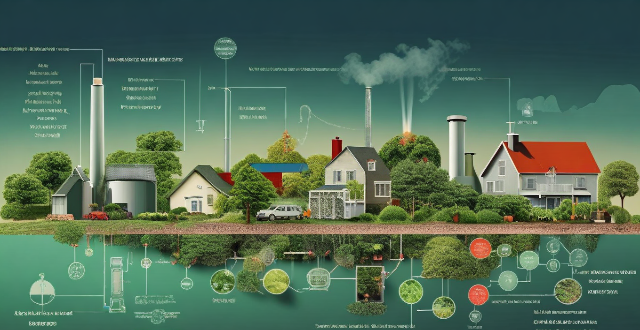
What are the benefits of implementing a carbon credit system ?
The carbon credit system is a market-based approach to reducing greenhouse gas emissions. It provides economic incentives for emission reduction, promotes innovation and technology adoption, enhances environmental stewardship, and serves as a regulatory and policy tool. By creating a market value for emission reduction, the system encourages businesses to reduce their carbon footprint and fosters global cooperation towards sustainability goals.
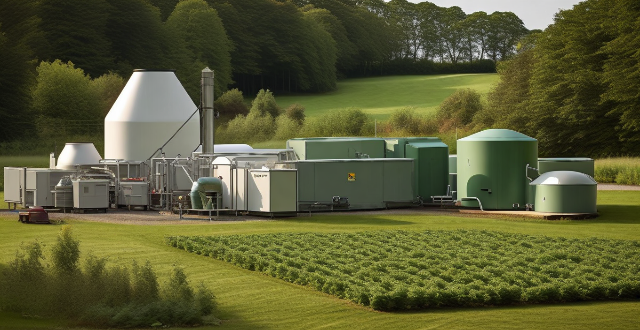
How does a carbon credit system work ?
A carbon credit system is a market-based approach that incentivizes companies, organizations, and individuals to reduce their greenhouse gas emissions. It works by setting emission reduction targets, generating carbon credits for verified emission reductions, allowing the trading of these credits, and using them for regulatory compliance or offsetting emissions. This system fosters economic efficiency, flexibility, and innovation while encouraging global cooperation on climate action. However, challenges such as ensuring permanence of reductions and maintaining system integrity must be addressed to ensure its effectiveness.

How does waste reduction contribute to a circular economy ?
The transition to a circular economy is significantly influenced by waste reduction, which encompasses various strategies like reusing products, recycling materials, and promoting resource efficiency. These practices help in conserving natural resources, reducing pollution, creating economic opportunities, and fostering sustainable consumer behavior. Governments and businesses play a crucial role in driving waste reduction through policy initiatives, technological innovations, and sustainable supply chain management. Community engagement and public awareness further support this shift towards a more sustainable economic model.

What role does waste reduction play in sustainable development ?
The article discusses the importance of waste reduction in sustainable development. It highlights the environmental, economic, and social benefits of waste reduction, including conservation of natural resources, protection of ecosystems, climate change mitigation, cost savings, job creation, innovation and efficiency, public health, education and awareness, and community engagement. The article emphasizes that waste reduction is an essential component of sustainable development and encourages individuals, businesses, and governments to take action to reduce waste.

How do cultural factors influence waste reduction practices ?
The text provides an overview of how cultural factors influence waste reduction practices, highlighting the role of cultural attitudes, social norms, education, religious beliefs, economic conditions, and technological advancements in shaping waste management behaviors. It emphasizes that respect for resources, consumerism vs. conservatism, composting traditions, public awareness campaigns, community cleanliness standards, taboos around waste, environmental education, family values, role models, stewardship principles, reincarnation beliefs, interconnectedness philosophies, affordability of disposable products, recycling costs, government incentives, access to technology, digital awareness campaigns, and innovative product design are all aspects of culture that can significantly impact waste reduction efforts. By understanding these cultural dynamics, more effective strategies for sustainable living can be developed globally.

What is the impact of renewable energy on emission reduction goals ?
The shift to renewable energy sources such as solar, wind, hydro, and geothermal power is vital for reducing greenhouse gas emissions and achieving global emission reduction goals. This transition brings multiple benefits including decreased reliance on fossil fuels, improved air quality, enhanced energy security, economic stimulation through job creation and long-term cost savings, technological innovation leading to reduced costs, and significant contributions to mitigating climate change. As technology advances and economies of scale are achieved, renewable energy's role in facilitating further progress toward emission reduction objectives will become increasingly important.

How can climate services help in disaster risk reduction ?
Climate services play a crucial role in disaster risk reduction by providing essential information and tools that help communities, governments, and businesses to anticipate and respond to the impacts of climate change. These services encompass a range of activities, including weather forecasting, climate monitoring, and the development of early warning systems. Climate services contribute to disaster risk reduction through several strategies, including risk assessment, preparedness planning, early warning and response, and recovery and resilience building. By leveraging these services, societies can build resilience against the increasing challenges posed by a changing climate.

What is the relationship between climate finance and disaster risk reduction ?
Climate finance and disaster risk reduction are interconnected concepts that address the impacts of climate change. Climate finance provides funding for projects aimed at reducing greenhouse gas emissions and adapting to climate change, while disaster risk reduction involves strategies to minimize the potential impacts of natural disasters on communities and infrastructure. The relationship between the two lies in their shared goal of addressing climate change, with climate finance supporting disaster risk reduction through funding for adaptation measures, investments in vulnerable communities, promoting sustainable development, encouraging innovation, and strengthening institutional capacity.

How can businesses implement waste reduction practices in their operations ?
This topic discusses the importance of waste reduction in businesses and provides strategies for implementing sustainable practices. It emphasizes the benefits of conducting a waste audit, adopting eco-friendly packaging, optimizing manufacturing processes, promoting reuse and repair, training employees in waste reduction, and partnering with green suppliers. The goal is to contribute to a more sustainable future while also benefiting financially through cost savings and efficiency gains.
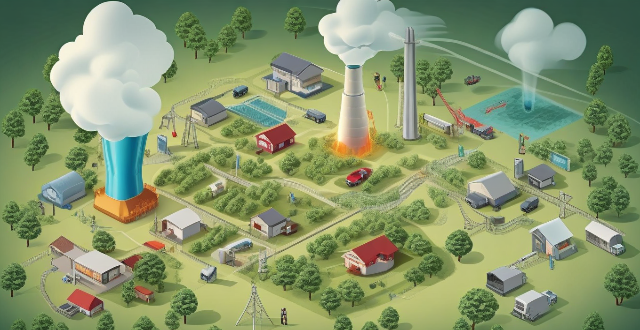
What is the relationship between waste reduction and energy conservation ?
The article discusses the relationship between waste reduction and energy conservation, highlighting their importance in promoting sustainable development. Waste reduction strategies such as recycling, composting, reusing materials, and reducing packaging conserve natural resources, reduce landfill space, and lower greenhouse gas emissions. Energy conservation measures like using energy-efficient appliances, improving insulation, and promoting renewable energy sources lead to lower energy costs, reduced greenhouse gas emissions, and promote sustainable development. The practices are interconnected, with recycling saving energy, composting reducing energy use, reducing packaging saving energy, energy-efficient appliances reducing waste, and promotion of renewable energy sources conserving energy and reducing waste.

Can you explain the myth of spot reduction in fitness ?
Spot reduction, the idea of targeting specific areas for fat loss through exercise, is a myth debunked by scientific research. To achieve desired body composition, focus on total body workouts, maintain a healthy calorie deficit, increase cardiovascular activity, strength train regularly, and be patient and consistent.
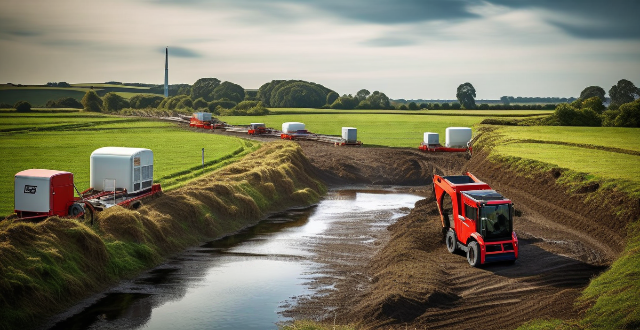
Are there any laws or regulations aimed at promoting waste reduction ?
Laws and regulations aimed at promoting waste reduction include extended producer responsibility (EPR), landfill taxes and bans, recycling targets, packaging regulations, local ordinances and programs such as curbside recycling and composting, waste reduction education campaigns, pay-as-you-throw programs, and international agreements like the Basel Convention. These measures encourage sustainable practices, reduce waste production, and promote recycling.

Can waste reduction lead to cost savings for individuals and companies ?
Waste reduction can lead to cost savings for both individuals and companies by minimizing waste in various aspects of daily life and business operations. For individuals, reducing food waste through meal planning and proper storage, minimizing energy consumption with energy-efficient appliances and water conservation, and reducing unnecessary spending through secondhand shopping and repairing instead of replacing can result in significant cost savings. Companies can also benefit from waste reduction by optimizing production processes with lean manufacturing techniques and resource recovery, improving logistics and supply chain management through just-in-time inventory and efficient packaging, and enhancing energy efficiency with green building design and employee training. Overall, waste reduction is a crucial aspect of sustainable living and business practices that can lead to cost savings while contributing to environmental sustainability.

What are the most effective strategies for waste reduction in households ?
Effective Strategies for Waste Reduction in Households 1. Reduce: Buy only what you need, choose products with less packaging, and use reusable items. 2. Reuse: Donate or sell unwanted items and repurpose old items for new uses. 3. Recycle: Separate recyclable materials, know what can be recycled locally, and compost organic waste. 4. Avoid Single-Use Plastics: Bring your own reusable bags and use refillable containers. 5. Educate Yourself and Others: Learn about waste reduction and share tips with friends and family.

Can exercise boost the immune system ?
Exercise can indeed boost the immune system through various mechanisms, including enhanced circulation, reduced inflammation, weight management, stress reduction, improved sleep, increased self-esteem and mental health, microbiome diversity, temperature regulation, prevention of chronic diseases, and social interaction. Regular moderate exercise is generally considered beneficial for the immune system, but it's essential to consult with healthcare professionals to determine the appropriate amount and intensity of exercise for individual needs and circumstances.
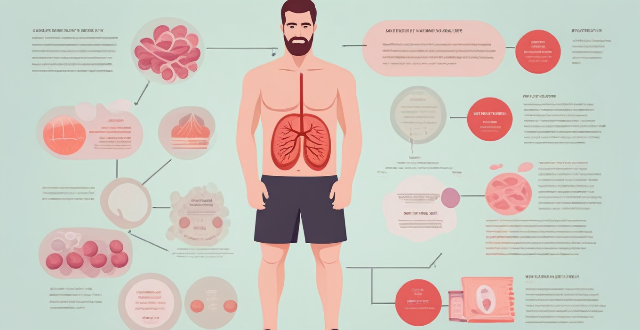
How does regular exercise contribute to boosting the immune system ?
Regular exercise has numerous health benefits, including boosting the immune system. It promotes increased blood circulation, reduces inflammation, helps in weight management, reduces stress, improves sleep quality, enhances gut health, increases antioxidant capacity, supports cardiovascular health, enhances mental health, and contributes to increased longevity. Incorporating regular physical activity into your lifestyle can support a strong and resilient immune system.

What role do individuals play in achieving the goals of energy conservation and emission reduction policies ?
The article discusses the critical role of individuals in achieving energy conservation and emission reduction policies. It emphasizes the importance of individual action, highlighting the collective impact of small changes and the potential for behavioral change. The article provides various ways individuals can contribute, such as reducing energy consumption, reducing waste, supporting renewable energy, and advocating for change. It concludes by emphasizing the power of individuals to bring about change and safeguard the planet for future generations.
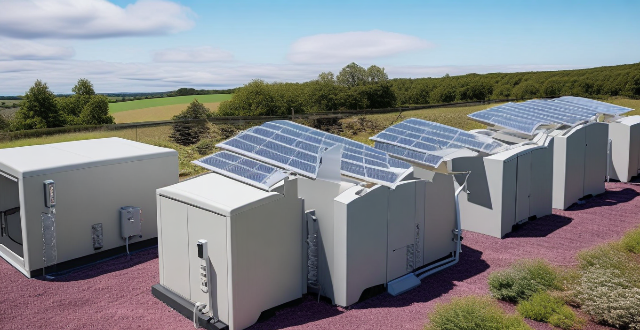
How does a distributed energy system work ?
A distributed energy system (DES) is a decentralized approach to power generation and distribution that utilizes renewable energy sources, energy storage devices, and smart grid technologies. The system works by generating electricity locally from renewable sources, storing excess energy for later use, and distributing power efficiently within a local area. This setup enhances efficiency, reliability, and sustainability while potentially reducing costs. DESs offer flexibility and adaptability to changing energy needs and technological advancements, positioning them as a crucial element in the future of energy infrastructure.

What are the benefits of having a strong support system for women in managing relationships ?
The article discusses the importance of a strong support system for women in managing relationships. It highlights the benefits of emotional support, advice and guidance, accountability, stress reduction, personal growth, celebration of milestones, and safe space for self-expression that a robust support network provides. The text also suggests ways to cultivate such a support system, including staying connected, being supportive, joining groups, seeking professional help, and ensuring reciprocity in relationships. Overall, the article emphasizes the role of a strong support system in helping women navigate the complexities of personal connections with confidence and resilience.

What is a carbon credit system ?
Carbon Credit System: A market-based approach that incentivizes the reduction of greenhouse gas emissions by allowing trades of emission allowances and investments in emission-reducing projects. It operates on principles like emissions trading, offsetting, and regulation to drive environmental benefits and innovation. However, challenges such as quality assurance, persistence in reducing actual emissions, and equity concerns need to be addressed for its effective implementation.
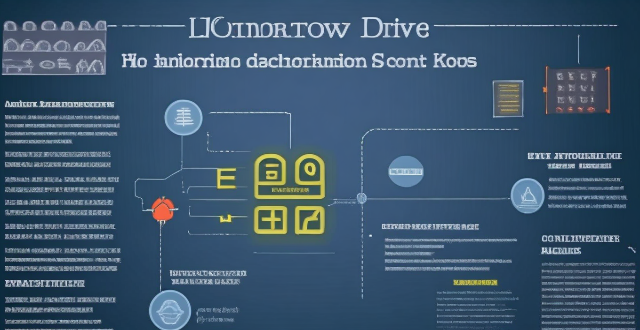
How does a multi-motor drive system work ?
The text explains how a multi-motor drive system works, its components, and benefits. It describes the process of power conversion, control signals, motor operation, mechanical transmission, and feedback adjustment in such systems. The advantages include improved efficiency, increased redundancy, and enhanced control.

How does a burglar alarm system work ?
Burglar alarm systems are designed to detect and prevent unauthorized access or theft. They typically consist of a control panel, sensors, cameras, and sirens/alarms. The system works by detecting movement or vibration at entry points, verifying whether it's an intruder, triggering an alarm, alerting the monitoring center or homeowner, deterring the intruder, recording footage, and restoring the system once the threat is neutralized.

How does a home security system work ?
A home security system is designed to protect your property and loved ones from potential threats such as burglary, fire, and other emergencies. It consists of various components that work together to detect, alert, and respond to different types of alarms. The control panel communicates with all other devices and connects to the monitoring center. Sensors detect movement, heat, smoke, or other environmental changes and send signals to the control panel. Surveillance cameras provide real-time video feeds that can be monitored remotely through a smartphone app or computer. Alarms produce loud sounds when an intrusion or emergency is detected. Keypads allow users to arm and disarm the system manually. Smart devices like smart locks, thermostats, and lights can be integrated into the system for additional convenience and control.

Can I install a home security system myself or do I need a professional ?
This guide helps individuals decide whether to self-install a home security system based on technical skills, time availability, budget, and system complexity. It outlines steps for DIY installation including research, planning, choosing the right system, gathering tools, and troubleshooting. The benefits of professional installation such as expertise, guaranteed workmanship, and customization are also discussed. The conclusion emphasizes that the decision depends on personal circumstances and preferences.
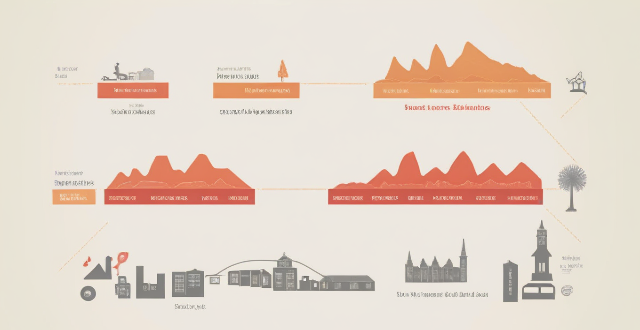
Can you explain Australia's points-based immigration system ?
Australia's points-based immigration system is a method to select skilled immigrants for permanent residency. The system assigns points based on age, education, work experience, and language proficiency. It aims to attract skilled workers who can contribute to the country's economy and fill labor market gaps. Applicants must meet health and character requirements and are placed into a pool of candidates for selection. The system provides transparency and fairness in the immigration process by using objective criteria to evaluate applicants.

What are the benefits of using a combination motor drive system ?
Combination motor drive systems offer benefits such as improved efficiency, increased reliability, flexibility, and enhanced control. These systems combine the advantages of different types of motors to create a more efficient and reliable drive system. They are ideal for a wide range of applications and can help businesses save money on energy costs while reducing downtime and maintenance requirements.